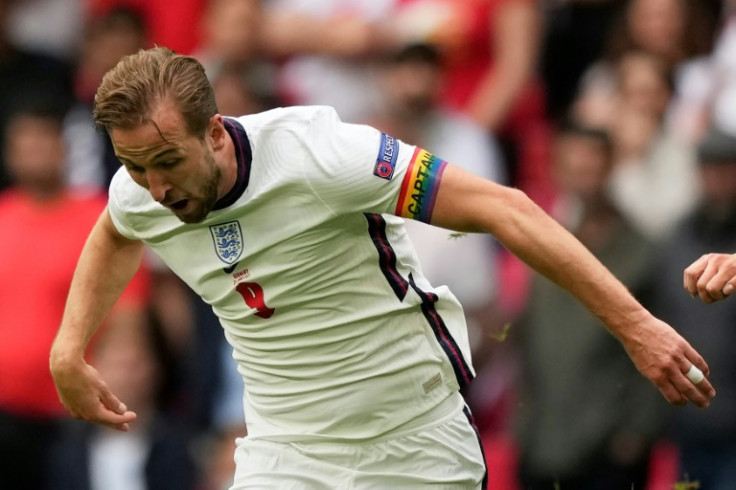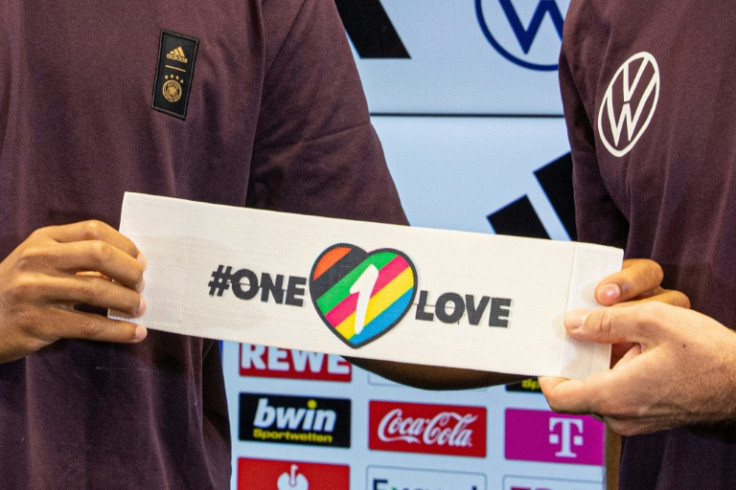World Cup: FIFA threatens team captains over 'One Love' armband supporting LGBT community
Several national team captains had to abandon their plans to wear the armband to avoid disciplinary sanctions.
In yet another controversy coming out of the 2022 FIFA World Cup in Qatar, several national team captains have been forced to abandon plans of wearing inclusive "OneLove" armbands in order to avoid receiving sanctions such as yellow cards.
England national team captain Harry Kane was believed to be one of those planning to wear the multi-coloured armband along with the captains of the Netherlands, Belgium, Denmark, Germany, Switzerland and Wales. In line with what was thought to be FIFA's long-standing campaign to promote respect and inclusivity, the "OneLove" campaign was also meant to oppose discrimination.

However, the governing body made a last-minute decision to penalise those who would choose to wear it at the World Cup in Qatar, a country often criticised for its human rights record including criminalisation of same-sex relationships, the abuse of migrant workers and the discrimination against women.
The national team federations issued a joint statement confirming that they have been warned by the governing body: "FIFA has been very clear that it will impose sporting sanctions if our captains wear the armbands on the field of play."
"As national federations, we can't put our players in a position where they could face sporting sanctions including bookings, so we have asked the captains not to attempt to wear the armbands in FIFA World Cup games."
The federations also confirmed that if they were to face fines, they would have willingly paid in order to allow their captains to play while wearing the armbands. However, they said that FIFA's sanctions go well beyond that. The players will be facing sanctions that could compromise their tournament, with the statement revealing that they "might be booked or even forced to leave the field of play."
Kane is one of the high profile players who made the decision to wear the armband and ironically, the "ban" was imposed just hours before England's opening match against Iran on Monday.
The federations confirmed that they informed FIFA of the intention to wear the armbands as far back as September, but they received no response. "Our players and coaches are disappointed – they are strong supporters of inclusion and will show support in other ways," the statement said, as quoted by CNN.
England manager Gareth Southgate also said that he would have wanted the situation to have been sorted out earlier. However, he now wants to focus on football. He also said that he is confident that people know what they stand for even without the armband on display.
Belgian player Thomas Meunier accused FIFA of deliberately waiting until the last minute to inform the federations about the sanctions. "They knew before that this would lead to protests and a lot of words and interviews, and of course negative words about Qatar," he said.
The issue comes days after Qatar also pressured FIFA to breach its contract with major sponsor Budweiser, which had initially been allowed to exclusively sell beer outside all eight World Cup stadiums. Those outlets were removed just two days before kickoff, causing outrage from many travelling fans.

© Copyright IBTimes 2025. All rights reserved.






















